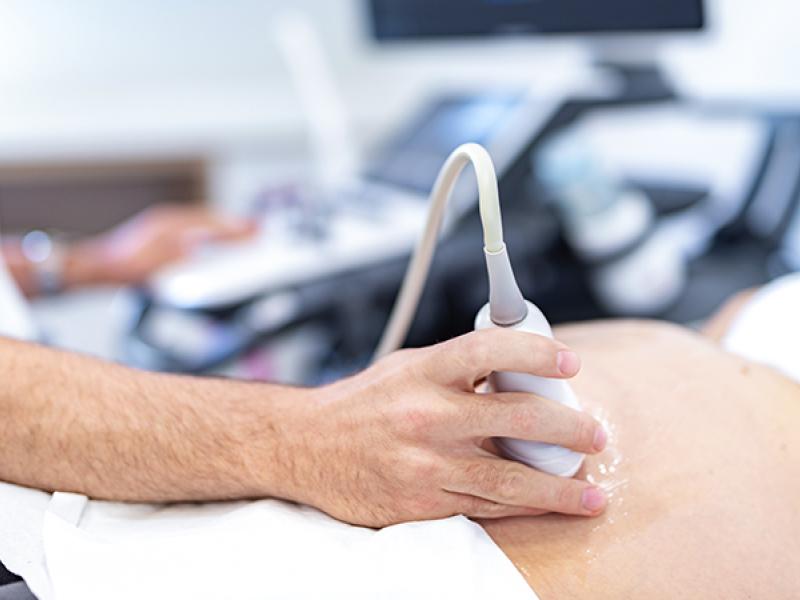Our program begins with intern orientation where you learn and practice basic surgical component skills such as suturing, knot tying, and incising skin without beveling. The program then provides monthly simulation experiences where you learn and practice many common procedures in our specialty: cesarean delivery, management of obstetrical hemorrhage, forceps and vacuum delivery, laparotomy, laparoscopic and robotic procedures, vaginal hysterectomy, urogynecological procedures, etc..
OB/GYN procedure Simulation
Our gynecological surgery program provides surgical videos, simulation models, and a Essentials in Minimally Invasive Gynecologic Surgery (EMIGS) trainer with necessary materials to practice for the exam. Our residents are expected to practice basic surgical skills until they are proficient.
Our residents participate in an annual Obstetric Emergencies Course as well as annual fetal heart tracing safety training. This year, we plan to utilize simulation for team-based safety training with nurses and techs on L&D. Operative vaginal deliveries – both vacuum and forceps – are practiced using our high-fidelity delivery simulator. This silicon pelvis is life-like, with anatomical landmarks such as pubic arch and spines, and allows for realistic forceps and vacuum simulation. Repair of 3rd and 4th degree lacerations is accomplished using the beef tongue obstetric laceration model. This excellent experience is helpful in orienting our residents to these important repairs before they are called on to perform one on the obstetrical service.
Real-World OR Experience
Our resident physicians transition rapidly from simulation to the real-world operating environment. “Primary surgeon” experience is defined by the ACGME as when you perform greater than 50% of a given procedure. “Teaching assistant” experience is defined as when you are the senior resident assisting and teaching the primary surgeon. When some residency programs provide primary operator experience with many different attending physicians at different hospitals, it is possible that supervising attending surgeons won’t get to know you well enough to trust you to truly primary their cases.
At Mizzou, all of our attending physicians are core faculty members and they get to know you well and learn to trust you early in your training. Moreover, you often operate with an upper-level resident as your teaching assistant. Your attending physician will be present in the OR for cesarean sections and hysterectomies, for example, but as you gain experience, they may not scrub in or may scrub and supervise from the side of the room. This is very valuable, especially as you become an upper-level resident, because it facilitates your progression in responsibility. Teaching a lower-level resident how to perform a surgery makes you think about that surgery in ways you never would have otherwise.
Mizzou’s obstetrical and gynecological procedural experience exceeds that of many other programs in the country. Our graduating chiefs’ procedure percentiles in 2023 (most recent available stats as of 9/5/24) compared to all programs were:
- 93rd percentile for vaginal hysterectomy
- 82nd percentile for laparoscopic hysterectomy
- 73rd percentile for vaginal deliveries
- 81st percentile for cesarean deliveries
- 52nd percentile for operative vaginal delivery
Our residents all learn how to perform “difficult” vaginal hysterectomies and both “straight-stick” and “daVinci” techniques. Graduates log 50-60 primary operator robot cases, allowing them to become robot qualified by the time of graduation.
Summary
We are committed to providing the very best educational experience for our residents. Our vision is to maximize the use of time to give our residents a "jump start" into the surgical arena. Once residents enter the OR environment, they rapidly achieve progressive levels of responsibility, eventually teaching lower-level residents how to perform many of the cases.





